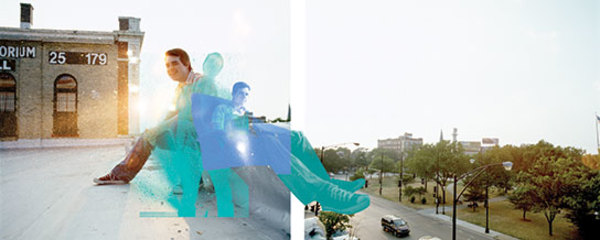Pitchfork Media: Online Exposure
Ryan Schreiber claims that the worst traffic in Chicago is outside his Logan Square office. […]
Pitchfork Media: Online Exposure
Ryan Schreiber claims that the worst traffic in Chicago is outside his Logan Square office. […]

Ryan Schreiber claims that the worst traffic in Chicago is outside his Logan Square office.
“It’s probably the worst intersection in the city for driving,” he explains. “It’s a huge circle and the lanes are splitting off in 20 different directions. Nobody has ever seen a huge traffic circle like it anywhere so no one really knows what to do.”
Logan’s overly trafficked roundabout is an apt metaphor for the daily commotion of the record industry, especially since the internet blew a dam for music. And standing over that teeming circle with a fishing net is Schreiber’s online music zine, Pitchfork Media. Averaging 125,000 hits a day and with its critical influence rivaling that of many print music magazines, the 10-year-old site is quickly rising to the top of the music journalism pack.
While indie rock is PFM’s staple, its writers also review hip-hop, jazz, funk, electronic and experimental music, along with running features on everything from the avant-garde nature of videogame sounds to the “lost generation” of late ’90s bands that critics loved but nobody heard. Matmos’ Drew Daniel reviews singles, while XLR8R’s own Philip Sherburne writes a monthly column on techno.
Boosters laud PFM for its writers’ honesty–reportedly causing some record shops to piously stock their recommendations. Haters accuse PFM of being elitists or hacks who mainly delight in watering art from the bladder.
“I think the appeal of Pitchfork is that we’re not bullshitting anyone,” Schreiber says. “When we love an artist, we do the best we can to evangelize them, sing their praises and hopefully get them heard by people who might share our interest in them. And when we hate an artist or a record, we’re very blunt and forthcoming about that.”
As for the future, Schreiber plans to bring PFM into internet radio, along with beefing up the site and organizing another large concert like last July’s successful Intonation Festival at Chicago’s Union Park.
“I still feel completely optimistic about the state of music and where it’s headed,” Schreiber declares. “I mean, there’s a lot of great shit buried out there in history, but I’ve also heard a lot of it and don’t feel the need to pore over the same records a billion times for the sake of nostalgia or some sugar-coated fictionalization of a better time.”

